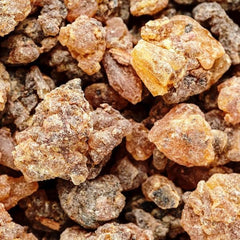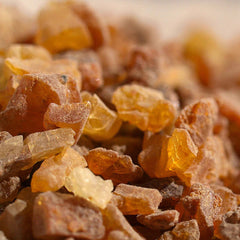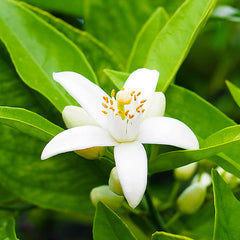Do Aromatic Perfumes Contain Spices?
Click For Affordable Inspired Perfume Alternatives
Perfumes have long been cherished for their ability to evoke emotions, memories, and a sense of elegance. Their complex compositions often include a variety of ingredients sourced from nature and synthetic compounds. Among these ingredients, many wonder whether spices are incorporated into aromatic perfumes, considering their warm and aromatic qualities. Understanding the composition of perfumes and the role of spices can deepen our appreciation for these luxurious fragrances.
Do Aromatic Perfumes Contain Spices?
In the world of perfumery, the term "aromatic" typically refers to fragrances that evoke fresh, herbaceous, and sometimes spicy notes. While spices themselves are rarely used directly as standalone ingredients in modern perfumes, their essence and aroma profiles are often captured through specific aromatic compounds and natural extracts. So, the short answer is: yes, many aromatic perfumes do contain spice-inspired notes, but not necessarily actual spices in their raw form.
Perfume creation is an art that combines a variety of ingredients to produce a harmonious scent. Spices contribute significantly to this palette, providing depth, warmth, and complexity. The influence of spices can be felt in the notes and accords that perfume designers craft to evoke the sensation of spices without using actual culinary spices. Let’s explore how this works and what role spices play in perfumery.
The Role of Spices in Perfume Composition
Spices are known for their bold, warm, and invigorating aromas. Historically, spices such as cinnamon, cardamom, cloves, pepper, and nutmeg have been used in perfumery to add richness and exotic appeal. These ingredients can serve as top, middle, or base notes, depending on their volatility and the desired scent profile.
In modern perfumery, spices are often represented through both natural extracts and synthetic aroma chemicals that mimic their scent. This allows perfumers to incorporate spicy notes without the practical challenges of working with raw spices, such as their limited shelf life and variability in scent profiles.
Common Spices Used in Perfumes
- Cinnamon: Offers warm, sweet, and woody aroma; used as a top or middle note
- Cardamom: Provides fresh, spicy, and slightly citrusy scent; adds brightness
- Cloves: Imparts a deep, warm, and aromatic quality; often used in oriental fragrances
- Black Pepper: Adds a sharp, pungent, and invigorating aspect
- Nutmeg: Contributes a warm, sweet, and spicy aroma
- Ginger: Brings a fresh, spicy, and slightly citrusy note
How Spices Are Incorporated into Perfumes
Perfume makers employ various techniques to include spicy elements in their creations:
- Natural Extracts: Using essential oils or absolutes derived from spices, such as cinnamon oil or clove bud oil, to add authentic spicy notes.
- Synthetic Aromachemicals: Creating spice-like scents through synthetic compounds that are more stable and versatile. For example, synthetic cinnamaldehyde mimics cinnamon.
- Blending and Layering: Combining multiple notes to achieve a spicy character, often layered with floral, woody, or citrus accords to create complexity.
- Accord Creation: Developing specific spicy accords that serve as building blocks for the fragrance, which can contain a mixture of different spice-inspired notes.
It’s important to note that while spices contribute significantly to the scent profile, they are usually part of a larger olfactory palette that includes floral, woody, citrus, and other notes.
Are There Actual Spices in Perfumes?
While some perfumes do contain actual spices, it’s more common for perfumers to use extracts and synthetic versions. The reasons include:
- Stability: Raw spices are perishable and can degrade over time, affecting the fragrance’s consistency.
- Scent Consistency: Synthetic compounds offer uniformity and control over the aroma profile.
- Practicality: Handling and processing raw spices on a commercial scale can be challenging and costly.
However, certain niche and artisanal perfumes may incorporate real spice extracts to achieve a more authentic scent experience. For example, some high-end perfumes may use infused oils or tinctures from cinnamon sticks or cloves.
Examples of Perfumes with Spicy Elements
- Tom Ford Tobacco Vanille: Features spicy notes like clove and cinnamon blended with tobacco and vanilla, creating a warm, inviting aroma.
- Yves Saint Laurent Opium: Contains spicy and oriental notes, including cinnamon, pepper, and myrrh.
- Guerlain Shalimar: Incorporates vanilla and spices like cinnamon and tonka bean for a rich, exotic scent.
The Impact of Spices on Fragrance Families
Spices play a crucial role in defining certain fragrance families, especially the oriental or amber family, known for their warm, sensual qualities. These perfumes often feature a blend of spices, resins, vanilla, and woody elements to create a luxurious and inviting scent profile.
In addition, spicy notes are also prominent in:
- Chypre fragrances: Often include bergamot with spicy accords for depth.
- Fougere fragrances: May contain lavender with pepper or other spicy elements for freshness and complexity.
- Woody fragrances: Frequently incorporate spices like pepper and cloves to add warmth and richness.
Conclusion: The Spicy Side of Aromatic Perfumes
In summary, aromatic perfumes often feature spice-inspired notes that lend warmth, depth, and complexity. While many of these scents are achieved through natural extracts and synthetic compounds rather than raw spices, the influence of spices is undeniable in perfumery. Whether as top notes that provide an initial burst of freshness or as base notes that leave a lingering warmth, spices are integral to creating captivating fragrances.
So, while aromatic perfumes do not typically contain whole spices, they certainly incorporate the aromatic essence of spices to craft their signature scents. This blend of art and chemistry allows perfumers to evoke the inviting, exotic, and invigorating qualities associated with spices, enriching our olfactory experience and making each perfume uniquely memorable.
Buy Perfumes - Best Online Retailers
Click For Affordable Inspired Perfume Alternatives
Click For The Best Niche Perfumes & Decants
Pheromone Perfumes - Confidence, Attraction & Appeal - Click For More
Home Fragrances & Candle Warmers - Click To Scent Up Your Spaces Today!



